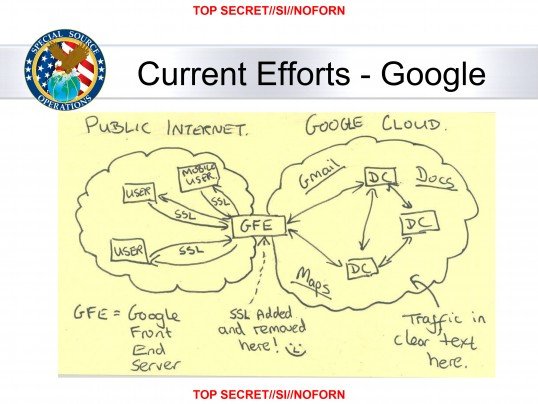Oliver Stone to do the Edward Snowden story
From a Guardian Press Release.
Academy Award-winning director Oliver Stone and his long-time producing partner Moritz Borman today announced they have purchased the rights to ‘The Snowden Files, The Inside Story of the World’s Most Wanted Man’, published by Guardian Faber and written by Guardian journalist Luke Harding.
Stone will write and direct the film, drawing from Harding’s critically-acclaimed account of events surrounding the Guardian’s Pulitzer Prize-winning reporting of the disclosures provided by Edward Snowden, as well as additional materials from the Guardian’s US team who broke the story.
Stone has commenced writing the screenplay and Borman is fast-tracking it as a major European co-production to start filming before the end of the year. Harding and other Guardian journalists will also act as exclusive production and story consultants.
Hmmm… Hope it’s better than his JFK film.
The Internet-of-Things. Or why nobody knows anything round here
There are lies, damn lies, and market research about the ‘Internet of Things’. Latest instalment from the bullshit machine here.
The Internet of Things – all those billions of smart, connected gadgets such as Google’s smart glasses above – should generate a staggering $7.1 trillion in annual sales by 2020, according to a report Tuesday by International Data Corporation.
That’s actually a downgrade from October, when the research firm predicted sales would hit $8.9 trillion. Asked about the revision, IDC Program Vice President Carrie MacGillivray said, “it’s a nascent market” and “we continue to learn daily on how this will all play out.”
Nonetheless, IDC officials remain solidly bullish on the financial windfall being produced by the Internet of Things, which they define as “a network of networks of uniquely identifiable endpoints (or “things) that communicate without human interaction using IP connectivity – be it ‘locally’ or globally.”
The significance of the ECJ ruling
“This time, Washington and its business allies cannot compel Europe to simply submit to U.S. values and interests, as they have in the past to great effect; such as when they pressured European airlines to hand over passenger data for European travellers or European banks to do the same for international money transfers after 9/11. In fact, they now have relatively few ways to influence Europe’s national privacy authorities, and even fewer ways to pressure the European Court of Justice. They may be able to influence forthcoming legislation, but they will not be able to overturn it. Nor can the United States rely on moral force. It is no longer the acknowledged protector of civil liberties on the Internet. To maintain legitimacy, it has to engage with other states that have valid, if different, civil rights concerns.”
From an excellent Foreign Affairs piece by Henry Farrell and Abraham Newman on the implications of the European Court of Justice ruling about the “right to be forgotten”.
The importance of doubt
Now, we scientists … take it for granted that it is perfectly consistent to be unsure — that it is possible to live and not know. But I don’t know whether everyone realizes that this is true. Our freedom to doubt was born of a struggle against authority in the early days of science. It was a very deep and strong struggle. Permit us to question — to doubt, that’s all — not to be sure. And I think it is important that we do not forget the importance of this struggle and thus perhaps lose what we have gained. Here lies a responsibility to society.
Richard Feynman
The ongoing racket that is FIFA
John Oliver is a genius. His only flaw is that he’s obsessed with football. But then, billions of other people are similarly afflicted.
Why the Economist’s obituaries are so good
I’ve often wondered why the obituaries in the Economist are so good. Now, thanks to a terrific piece by Isabelle Fraser I know: they’re written by a brilliant writer, Anne Wroe.
The subject of the week’s obituary is decided on Monday, and it must be written and polished by Tuesday. This 36-hour window is a marathon attempt to consume as much information as possible. “I just sort of feed it all in. Make a huge great collage in my mind. And then it compresses down terribly: there must be millions of words in there and it just comes down to a thousand.”
Often, Wroe is stepping inside the mind of someone who was utterly obsessive about something, and briefly, their passion must become of great importance to her as well. “There was one man I wrote about who was a carpenter, and he specialized in making drawers. It’s quite difficult to get drawers to go in and out smoothly, and you can understand how that could become an obsession. So I had to learn how to make them as well, and find out which woods were best. I had to be just as enthusiastic about how to do it as he was.”
“I think the hardest one was when I did Ingmar Bergman,” she says. “I had to spend the whole night watching the movies, and by the end I was suicidal. They were so dark, and they were getting darker and darker.” She compares it to an Oxford tutorial essay, a kind of fast-paced cramming. “The writers are horrifying; I absolutely dread it when the writers die. There’s such a lot to read!”
Wroe insists on only reading source material by her subject. “I never go to any books written by anybody else. I go to the words on the paper, their diaries. I think it’s the only way to do it, because that’s the voice that has disappeared.”
Big Data: the Rorschach Blot de nos jours
An Observer essay on one of the obsessions of our times. Published today.
Can Google really keep our email private?
This morning’s Observer column.
So Google has decided to provide end-to-end encryption for any of its Gmail users who wants it. One could ask “what took you so long?” but that would be churlish. (Some of us were unkind enough to suspect that the reluctance might have been due to, er, commercial considerations: after all, if Gmail messages are properly encrypted, then Google’s computers can’t read the content in order to decide what ads to display alongside them.) But let us be charitable and thankful for small mercies. The code for the service is out for testing and won’t be made freely available until it’s passed the scrutiny of the geek community, but still it’s a significant moment, for which we have Edward Snowden to thank.
The technology that Google will use is public key encryption, and it’s been around for a long time and publicly available ever since 1991, when Phil Zimmermann created PGP (which stands for pretty good privacy)…
LATER Email from Cory Doctorow:
Wanted to say that I think it’s a misconception that Goog can’t do targeted ads alongside encrypted email. Google knows an awful lot about Gmail users: location, browsing history, clicking history, search history. It can also derive a lot of information about a given email from the metadata: sending, CC list, and subject line. All of that will give them tons of ways to target advertising to Gmail users – — they’re just subtracting one signal from the overall system through which they make their ad-customization calculations.
So the cost of not being evil is even lower than I had supposed!
STILL LATER
This from Business Insider:
Inside the code for Google’s End-to-End email encryption extension for Chrome, there’s a message that should sound very familiar to the NSA: “SSL-added-and-removed-here-;-)”
Followers of this blog will recognise this as quote from a slide leaked by Edward Snowden.
This comes from a slide-deck about the ‘Muscular’ program (who thinks up these daft names?), which allowed Britain’s GCHQ intelligence service and the NSA to pull data directly from Google servers outside of the U.S. The cheeky tone of the slide apparently enraged some Google engineers, which I guess explains why a reference to it resides in the Gmail encryption code.


